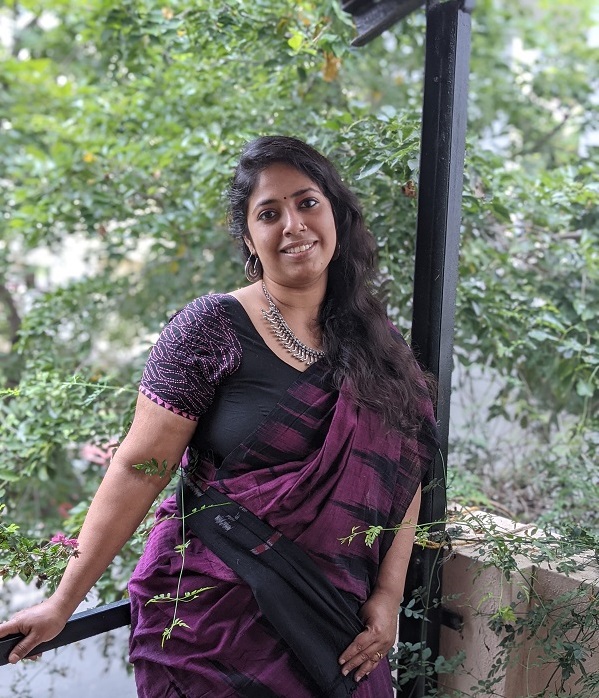Dr Chaithra S RAOresponds to ThinkWellness360 questionnaire:
Why and how did you think of becoming a doctor?
It happened while I was growing up. I watched my mother and grandmother ‘cook up’ home remedies for simple ailments. The way my paediatrician treated me as a kid and my botanist uncle, who ‘practiced’ Ayurveda, also stoked my innate passion for biosciences and a latent, resident desire to be of service to society — all of this and more instilled my love for natural medicine. By age ten, I was sure of my inner call. I wanted to pursue Ayurveda.
What made you think of, study and specialise in the system of medicine you now practice?
I was an ardent student of Sanskrit from Class 6. I was also equally interested in the ancient sciences, hidden native knowledge and medicine. My exposure to and interest in ethnobotany, during my teens, bid fair for Ayurveda to being my field of choice, also study, practice and research. I am grateful to my Sanskrit teacher, my mother and my late uncle, and aunt, who made me realise my passion by getting me riveted to the fundamentals of Ayurveda. My fascination only amplified in the subject, thanks to my teachers, my colleagues and friend, Dr Ambika P Nayak, with whom I enjoy having technical brainstorming sessions and discussions. This is not all. Diverse foods and cuisine in our culture has, likewise, been my field of growing interest and exploration — especially in the area of Ayurvedic dietetics.
What has been your personal and professional experience as a doctor?
From the personal standpoint, certain compromises are part of the medical profession, more so for an Ayurvedic physician. Our patient’s well-being is our priority, yes — this may sometimes affect our personal space, freedom and quality family, also ‘me,’ time. Nonetheless, from the professional perspective, it is extremely satisfying to bringing a smile on your patient’s face and helping them with their health problems. When a patient expresses their heartfelt thanks, after finding a solution to their health concern, it reaffirms the fact that all our efforts and compromises are worthwhile.
What unique and special skills you think you have that has made the big difference for your patients?
Some of my patients say that it is my ability to unwearyingly listen to them, explain the pathogenesis of illness, or disease, in layman’s language, give them enough time during consultations, while instilling confidence in me and the system of medicine I practice, are my virtues, and this they express is endearing. My innate yearning to making them experience the holistic, also harmonious, treatment outcomes of Ayurveda, perhaps, has made the big difference too.
What is your best definition of optimal wellness and why?
Wellness is a comprehensive idiom. Optimal wellness relates to complete balance by way of physical and mental health and social, economic and spiritual wellness. Achieving optimal wellness is impossible when any cog, or component, of wellness is imbalanced.
Your best case?
My first case was memorable. This was a 21-year-old girl with a history of cholecystectomy [removal of gallbladder]. She was experiencing irritable bowels and irregular menstruation with dysmenorrhoea [painful periods]. Her blood picture revealed that she suffered from microcytic hypochromic anaemia. Her iron profile was poor in spite of an iron-rich diet and supplements. She reported that her bowel distress was diagnosed to be a psychological affliction and unrelated to any physical ailment. I put her through grahani [Ayurveda diagnosis] and on Ayurveda intervention for six months. This gave her tangible respite from her irritable bowel issue and dysmenorrhoea. Her menstrual cycle regularised and her blood picture became excellent. Treating the ‘root cause,’ I reckon, tackled all her health issues. This case, during my first ‘baby steps’ in clinical practice, obviously gave the big boost to my confidence.
Your ‘not-so-good’ case?
All cases where patients are non-compliant are ‘not-so-good’ cases to me. We come across a handful of them on a regular basis in our clinical practice.
What appeals to you the most?
Nature and knowledge.
What annoys you the most?
Injustice; cruelty towards animals and nature.
Your favourite book?
The Alchemist by Paulo Coelho
Your favourite joke?
There are no favourites, but I enjoy humour and a good laugh.
Your favourite song?
Dheere dheere chal chand gagan mein [Love Marriage [1959]/Mohammed Rafi//Lata Mangeshkar/Hasrat Jaipuri/Shankar-Jaikishan]
Naguva nayana madhura mouna [Pallavi Anupallavi [1983]/S Janaki/S P Balasubrahmanyam/R N Jayagopal/Ilayaraja]
Your favourite movie?
The Gods Must Be Crazy
Your favourite TV, Netflix show?
The Big Bang Theory
Your other interests, or hobbies?
Gardening, reading, spending time with pets, and cultivating medicinal plants.
Your goal in life?
To be a humble, helpful person, good Ayurvedic clinician and physician, and make a mark in the field of Ayurvedic dietetics and food product development. To author a handful of books related to Ayurveda, aside from ‘light, humorous reads.’

